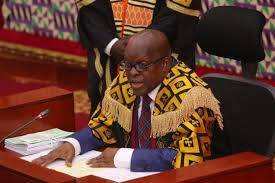The Indefinite Break of Ghana’s Parliament: A Call for Accountability
In recent weeks, the Ghanaian Parliament has gone on an indefinite break, a move that has sparked significant public discourse. Many citizens are questioning the legitimacy of MPs receiving salaries while not actively fulfilling their duties. This situation raises a critical issue: if Parliament can step away from its responsibilities yet still expect compensation, what precedent does this set for ordinary Ghanaians? Can the average citizen also choose to stay home and expect the same?
The Context of Parliamentary Breaks
Parliamentary breaks are not uncommon; however, an indefinite break poses unique challenges. Such breaks can disrupt legislative processes, hinder the passage of essential laws, and delay the government's response to pressing national issues. While MPs often argue for the need for breaks to regroup and strategize, the timing and context of this current break have led to questions about accountability and the responsible use of public funds.
Public Expectations and the Social Contract
In Ghana, public servants, especially those in Parliament, are seen as representatives of the people. They are expected to work diligently for their constituents and prioritize national interests. When Parliament takes a break without a clear plan for reconvening, it creates a disconnect between the expectations of citizens and the actions of their elected officials.
The social contract between the electorate and their representatives hinges on trust and accountability. Citizens expect their MPs to be present and actively engaged in governance. If Parliament can take an indefinite break while still receiving salaries, it undermines the very foundation of this contract. This situation raises an important question: if MPs can disengage from their responsibilities, can ordinary Ghanaians also opt for a similar approach?
The Implications of a "Work-from-Home" Mentality
While many Ghanaians are increasingly familiar with the concept of working from home, the expectation of receiving salaries without fulfilling duties is contentious. The reality for the average citizen is starkly different. Most Ghanaians face strict accountability in their jobs, where performance directly influences income and job security.
If the public begins to adopt a similar mindset as that of the Parliament—where disengagement is tolerated and salaries are expected—this could lead to a breakdown of work ethics and productivity across various sectors. The government must set a precedent that emphasizes accountability, particularly in public service.
A Call for Change
The current situation demands a response from both Parliament and the broader Ghanaian society. Citizens are calling for:
1. Accountability: There must be transparency regarding why Parliament has taken an indefinite break and how this affects the legislative process. Citizens deserve clarity on how their representatives are performing, even during breaks.
2. Reevaluation of Compensation: The expectation that MPs receive salaries during an indefinite break raises questions about the appropriateness of such compensation. A reevaluation of how public officials are paid during periods of inactivity could align salaries more closely with performance.
3. Public Engagement: Parliament should engage with the public to explain their decisions and outline a plan for reconvening. This could help rebuild trust and demonstrate that they are still committed to serving the interests of Ghanaians.
4. Establishing Clear Policies: The government should implement policies that define conditions under which public servants can take breaks and how salaries are handled during these times. Clear guidelines can help mitigate any misunderstandings or frustrations.
Conclusion
The indefinite break of Ghana’s Parliament serves as a pivotal moment for accountability and public expectations. If Parliament members can remain absent while expecting salaries, it creates a dangerous precedent for ordinary Ghanaians. As citizens grapple with their own economic realities, they rightfully demand that their representatives uphold the standards expected of them.
For true progress, both Parliament and the public must work together to foster a culture of responsibility, transparency, and accountability. By ensuring that those in power are held to the same standards as the citizens they represent, Ghana can strengthen its democratic foundations and promote a more engaged and productive society.


